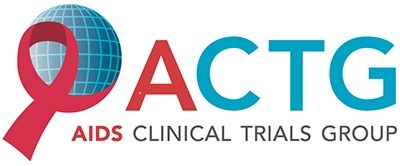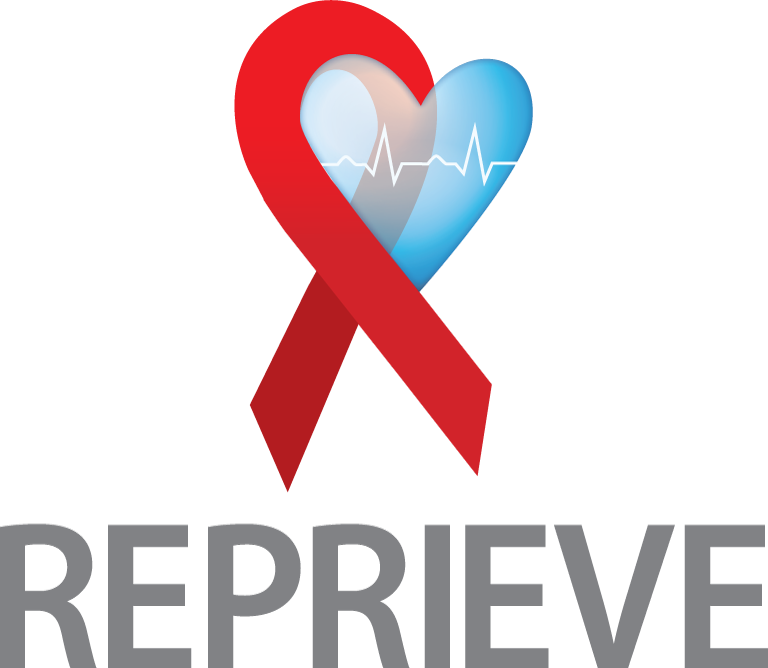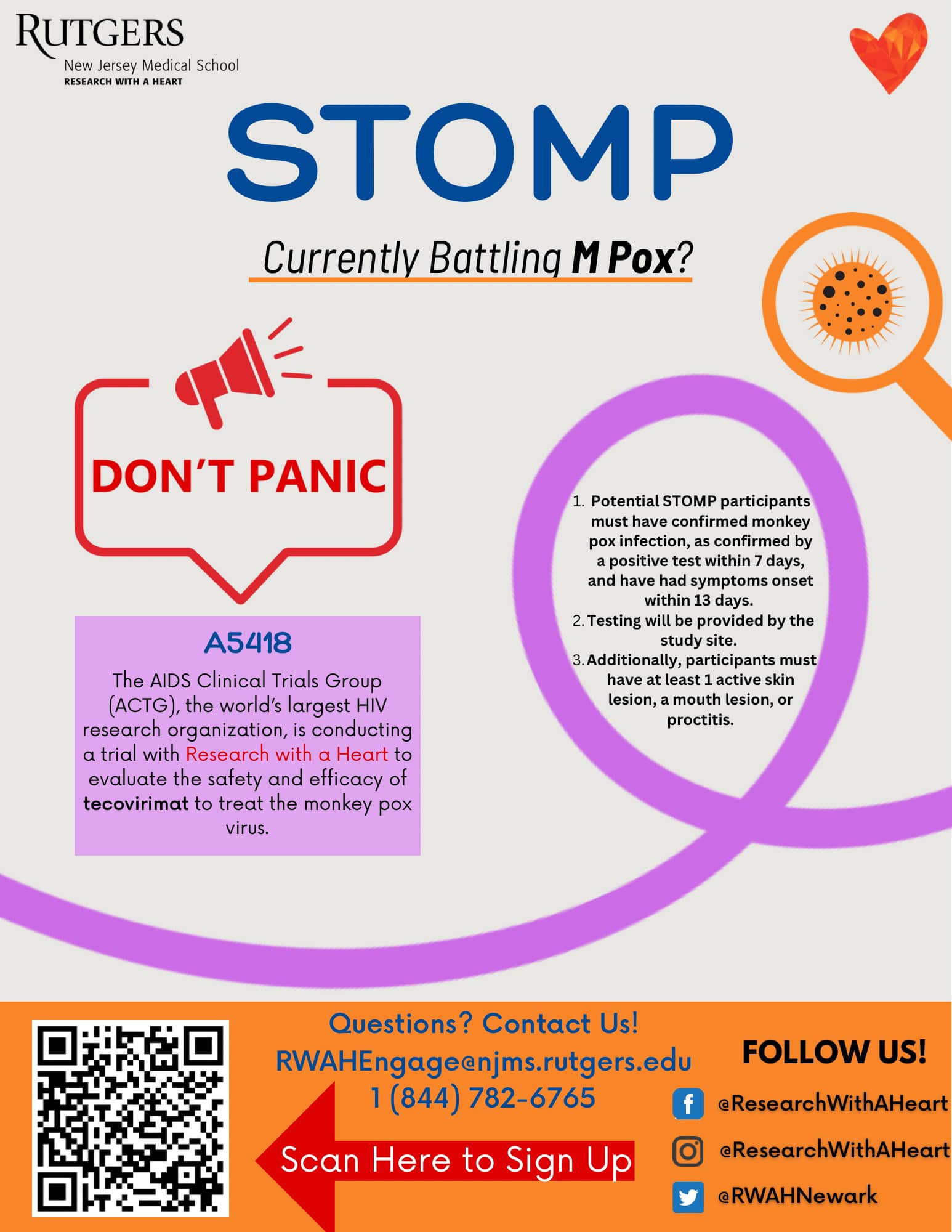Past Studies
Past Studies!


EXIT-CJS
About:

A5359: The LATITUDE Study
About:
This four-step study compares Long-Acting (LA) Injectable Antiretroviral Therapy (ART) to standard of care (SOC) oral ART in previously non-adherent individuals.

A5322: Long-Term Follow-up of Older HIV-infected Adults in the ACTG: Addressing Issues of Aging, HIV Infection and Inflammation (HAILO)
About:

A5332: REPRIEVE Trial
About:
HIV causes inflammation (irritation) inside the body that cannot be felt but can be measured. Inflammation may contribute to diseases such as heart disease that have become some of the leading causes of death in people with HIV. HIV medications can lower inflammation somewhat, however sometimes the levels of inflammation can remain higher compared to people who do not have HIV.
Statins (name of the group of medicines that pitavastatin belongs to) are used to lower the levels of cholesterol and triglycerides (fat in the blood) that people make. Studies have shown that statins may have other benefits. For example, heart disease and the levels of inflammation can be lowered by statins.
Pitavastatin is a statin that, along with a diet, has been approved by the US Food and Drug Administration for the treatment of high cholesterol. It also lowers triglyceride levels in the blood.
The main purpose of this clinical trial is to see if pitavastatin can prevent heart disease and heart disease related deaths in people with HIV who are taking HIV medications.

A5361s: Pitavastatin to Reduce Physical Function Impairment and Frailty in HIV (PREPARE)
About:

A5366: Selective Estrogen Receptor Modulators to Enhance the Efficacy of Viral Reactivation with Histone Deacetylase Inhibitors
About:
While antiretrovirals known as ARV’s (group of medicines used to treat HIV) have provided very effective treatment of HIV, cure of HIV from the body has not been possible. One of the reasons may be due to virus hiding in resting (or ‘latent’) immune cells. This reservoir (the hidden virus) is able to reproduce itself and serves as source of infection if ARV’s are stopped. Some investigational medications have been shown to wake up latent (sleeping) immune cells allowing them to get rid of the virus they have inside them. However, these therapies are only partly effective and results vary in different people. Preliminary studies have shown that these therapies may be less effective in women due to female hormones.
This study will evaluate one of the medications (Vorinostat) that have been shown to reverse latency in combination with another medication (Tamoxifen) that researchers hope will enhance that effect, specifically in women.

CoVPN 5002: The COMPASS Study
About:
The COMPASS Study – Community Prevalence of SARS-CoV-2 Study (CoVPN 5002) will estimate the percentage of people affected by SARS-CoV-2 in selected communities in the United States. SARS-CoV-2 is the name of the virus that causes the coronavirus disease, called COVID-19. The COMPASS Study will evaluate the extent of COVID-19 in these communities; assess knowledge, attitudes and behaviors related to SARS-CoV-2 and COVID-19; model the potential impact of different prevention interventions; and guide future SARS-CoV-2 prevention studies and COVID-19 treatment studies in these communities. It will also provide valuable samples for important laboratory assessments related to the acquisition of SARS-CoV-2 and impact of the COVID-19 pandemic.
For more information regarding this study, please visit www.compassstudy.org.

HPTN 083
About:
A Phase 2b/3 Double Blind Safety and Efficacy Study of Injectable Cabotegravir Compared to Daily Oral Tenofovir Disoproxil Fumarate/Emtricitabine (TDF/FTC), for Pre-Exposure Prophylaxis in HIV-Uninfected Cisgender Men and Transgender Women who have Sex with Men

MOSAICO: HPX3002/HVTN706
About:
Mosaico is a large study that will try to prove whether the experimental vaccine regimen can prevent HIV infection in North America, Latin America, and Europe. If Mosaico can show that the study vaccine regimen works, it will be a very important step on the way to finding a safe and effective vaccine for the prevention of HIV.

The RUXCOVID clinical trial
About:
RUXCOVID is a global, randomized, double-blind, placebo-controlled, 29-day, multi-center Phase III study evaluating the efficacy and safety of ruxolitinib plus standard of care (SoC) therapy in patients aged ≥12 years with COVID-19 associated cytokine storm.

START Study
About:
INSIGHT’s START (Strategic Timing of AntiRetroviral Treatment) is an international randomized trial to determine whether starting antiretroviral therapy (ART) early (before CD4 drops to less than 500 cells/mm³), rather than waiting until CD4 drops to less than 350 cells/mm³ (when evidence from randomized trials supports starting ART), reduces the occurrence of serious morbidity and mortality. START began enrollment in April 2009 at 215 clinics in 35 countries around the world. Enrollment was completed on 23 December 2013, with 4,688 participants. Baseline characteristics of participants in START and its sub-studies are described in the April 2015 supplement to HIV Medicine.

A5324: A Randomized, Double-Blinded, Placebo-Controlled Trial Comparing Antiretroviral Intensification with Maraviroc and Dolutegravir with No Intensification or Intensification with Dolutegravir Alone for the Treatment of Cognitive Impairment in HIV
About:

A5354: Early ART in Acute HIV
About:

A5360: MINMON Study-Monitoring SOF/VEL in Treatment Naïve, Chronic HCV Participants
About:

